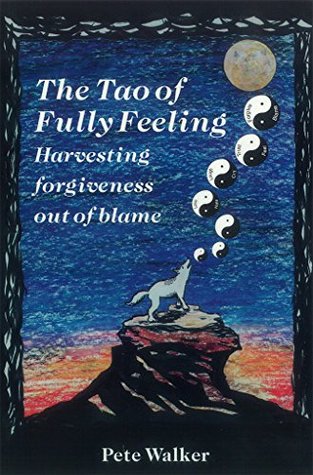More on this book
Community
Kindle Notes & Highlights
Children who are not allowed to blame their parents’ bad behavior often become adults who do not protect themselves from abuse.
As we become more emotionally whole, our health and vitality naturally improve. When we disburden ourselves of old unresolved traumas, energy wasted holding the past at bay becomes available for celebrating daily life.
If we do not awaken from denial, we may never realize that we frequently treat ourselves as harshly as did our parents. Children learn by imitation, and adult children of dysfunctional families undergo much unnecessary suffering from learned self-abuse and neglect.
Children of dysfunctional families are commonly born into terrible loneliness. Children who are supposed to be “seen and not heard” cannot help but suffer from overwhelming feelings of alienation and rejection.
Much loneliness is healed through open and uncensored communication.
Friends are people who help you be more yourself, more the person you are intended to be.
When perfectionism keeps us from communicating about our troubles, we never learn the liberating secret that everyone has their fair, or unfair, share of pain. We are never soothed by the healing compassion that spontaneously arises between people who commiserate. Commiseration is the age-old human process, barely extant in our culture, of resolving our hurts and frustrations through talking about them. Commiseration adds depth and juice to intimacy in a way that nothing else can.
Our need for our own and others’ love and support is greatest when we are in pain and struggling with our limitations. How sad and unnecessary that many of us still hide in the isolation of our rooms when we are hurting – as loveless and uncared for as we were in our family homes. When we do, it is as if our parents are once again lacerating our self-esteem by banishing us from their presence until we “wipe that look off our faces.”
Well-adjusted has come to mean unaffected
If we are to reclaim our healthy fully feeling human nature, we must renounce our unholy allegiance to the belief that mental health means being happy all the time.
We can categorize and store thoughts in memory, recall them selectively, and – depending on our ability to concentrate – hold them in awareness when we want to. We can even go to libraries and bookstores and “shop” for thoughts and ideas that we would prefer to contemplate.
Individuals who only identify with “positive” feelings often become bland, deadened, and dissociated in a feeling-less desert, a true no-man’s-land. In the psychic desert of disavowed emotion, the smoldering heat of repressed anger evaporates our feelings of love and affection, leaving us emotionally dehydrated. Rejecting emotions because they are sometimes unpleasant is like cutting off body parts because they are not pretty.
Avoidance of unwanted emotions also commonly leaves us trapped in chronic, low-grade manifestations of them. Many long-enduring moods are caused by repressed emotions that slowly and biliously leak into consciousness. When underlying emotions are offered no effective expression and release, the moods they create contaminate and dominate awareness for inordinately long periods of time.
Some of us become instantly drowsy whenever our feelings are stirred up and threaten to emerge into consciousness.
Many Western men are predisposed to sexual preoccupation because they depend on sex for all their intimacy needs. Our culture engenders this by making men afraid to relate intimately in ways that are not sexual. For many of us, this begins in toddler-hood when we are banished from our parents’ laps as soon as we are able to walk.
When a child is only valued for being helpful, she is in danger of becoming a compulsive helper. In my family, approval was so hard to come by that my sisters and I sometimes fought for the “honor” of helping my mother. I don’t believe it is any coincidence that three out of the four of us are now helping professionals.


